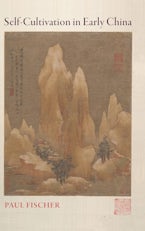- Home
- Library of Judeo-Arabic Literature
- literary collections
- philosophy
- Dawud al-Muqammas: Twenty Chapters

Dawud al-Muqammas: Twenty Chapters
Translated by Sarah Stroumsa
Series: Library of Judeo-Arabic Literature
576 Pages
- Hardcover
- ISBN: 9780842529969
- Published By: Brigham Young University Press
- Published: February 2017
$79.95
Dāwūd al-Muqammaş’s Twenty Chapters brings the reader into the little-known world of 9th century theology and polemics in the Middle East. Al-Muqammaş was a Jew who converted to Christianity and then reverted to Judaism, using the topics he garnered from Syriac Christian thinkers to both critique Christianity and buttress his own reclaimed faith.
Twenty Chapters is the first Jewish theological summa written in Arabic, its author the first to engage in polemics with both Christianity and Islam. Sarah Stroumsa, the editor and translator of this text into English, contends that al-Muqammaş’s Judaism predates the schism between Rabbanites and Karaites, however much later Karaites wished to claim him. However, it is the tractates of the theologians of Islam, the mutakallimūn, to which al-Muqammaş is most indebted. His Twenty Chapters exhibits an early articulation of the literary and logical style that Islamic theology, aka Kalām, expressed.
The particular importance of this book for students of Islamic thought and readers of Arabic led Stroumsa to have the Hebrew letters of the Judeo-Arabic text (which she first published in 1989) transliterated into Arabic characters, the original letters of the text. The Arabic appears on facing pages opposite the English translation (with the exceptions of chapter 16 and a fragmentary chapter 20, which are extant only in Hebrew translation). This is the format for a projected series of texts in Judeo-Arabic literature, similar to previous series in Arabic and Persian literature that the Middle Eastern Texts Initiative of Brigham Young University has undertaken.
Stroumsa starts the new series off on an impressively high note with a felicitous translation, exacting editorial annotation, and a complete, somewhat revised critical commentary. In a comprehensive introduction, she examines al-Muqammaş’s biography and other texts of his (including one on Buddhism) that are exegetical and polemical in nature, but which are extant only in fragmentary form. She describes the main themes of Twenty Chapters as involving epistemology (following Aristotle mostly), the world, God, humanity and revelation, as well as a critique of religions other than Judaism (xxxi).
The book opens with an assertion of the objective existence of the world and of the sensory and cognitive faculties by which we obtain true knowledge. Al-Muqammaş’s position on the validity of empirical and logical reasoning is aimed at skeptics as well, probably, at those mutakallimūn who denied the autonomy of nature and human reason. The components of Al-Muqammaş’s “world” are composed, following Aristotle, of natural substances and accidents, not of the evanescent atoms and accidents of kalām doctrine. It is a world created ex nihilo by a unique eternal deity who cannot be known, all attributes given him not to be taken literally and needing qualification. Al-Muqammaş adopts the doctrine of negative theology, a doctrine common to Christian and Muslim thought and later elaborated upon in Judaism by Maimonides in his Guide of the Perplexed.
Al-Muqammaş’s agnostic position on God does not prevent him from adopting traditional Jewish beliefs on the deity’s granting of free will to humanity and the deity’s rewarding virtuous behavior with a spiritual, not corporeal, afterlife. In this manner al-Muqammaş counters both the predeterminists of Islam and the physical depictions of the afterlife in both Islam and Christianity. He is also partial to Judaism in his discussion of prophecy, Moses being deemed the person most qualified to meet the conditions set out. These conditions are essentially rational and naturalistic, the miracles as recorded in Scripture seen as validated by the public participation in them.
In not detecting the circular nature of his reasoning, using scripture to validate scripture, al-Muqammaş reveals himself as a creature of his time. He has written a work that combines neutral philosophical arguments of a universal nature with polemical assertions that affirm his Jewish roots. Sarah Stroumsa is to be congratulated for vivifying the world to which he belonged and for opening it to a larger audience.
Alfred Ivry is Professor Emeritus of Hebrew/Judaic Studies at New York University.
Alfred L. IvryDate Of Review:November 14, 2018
Sarah Stroumsa is the Alice and Jack Ormut Professor of Arabic Studies at the Hebrew University of Jerusalem.











